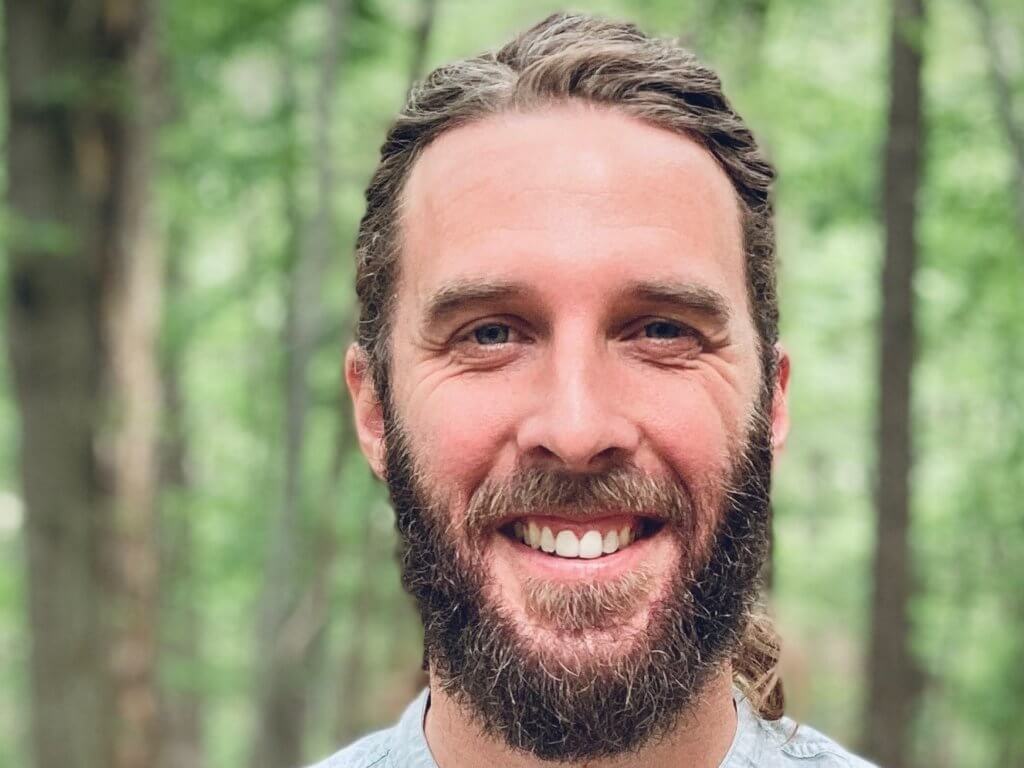

If you look up “pilgrimage” you’ll find that it’s usually referred to simply as a journey taken for religious reasons. Ian Reader and Tony Walter flesh out that definition in their book Pilgrimage in Popular Culture stating, “A pilgrimage is a journey, often into an unknown or foreign place, where a person goes in search of new or expanded meaning about their self, others, nature, or a higher good, through the experience. It can lead to a personal transformation, after which the pilgrim returns to their daily life.” This is the idea of pilgrimage that host, Randy Flood and his guest, Brian Mulder explore on the Revealing Men podcast. Flood, psychotherapist, and Director of the Men’s Resource Center of West Michigan is a long-distance biker and traveler. Mulder, a former therapist with the Men’s Resource Center, has pursued pilgrimage-like adventures: crossing the United States on a bicycle and traversing the breadth of Michigan and Spain on foot. The two draw on their experiences adventuring to illustrate how counseling might be seen as a pilgrimage to personal transformation.
Pilgrimage as New Birth
The Camino de Santiago is a pilgrimage that’s been happening for thousands of years, even before it became popular among Christians. Mulder explains, “There was this tradition that at the end of this pilgrimage people would burn their clothes and walk in the water as a symbol of new birth.” He made the pilgrimage – “wildly exciting and just one of the hardest things I’ve ever done” – starting in France and across Spain. He walked 30+ days, 900 kilometers to its end. It wasn’t the first journey Mulder made, but it illustrates how he views the world in terms of journey and destination, challenge and reward.
The seed of intentionality—bike, walk, move slow—seems to have been planted in him at a young age. Walking to church on Sundays. Riding his bike 100 miles to work at summer camp. “I wasn’t a biker but decided to do it anyway. It was brutal. It was rough. [But] it was so satisfying.” This was the point, he says, when he began to recognize the value of choosing something difficult. A subsequent trip on bike from San Diego to Myrtle Beach gave Mulder a sense of satisfaction: “I can do hard things. I can be disciplined. I can intentionally choose a journey to go on.”
Flood mentions the parallels to counseling. “Counseling can be difficult (especially if it’s working.) It’s tough. There’s struggle. It can be painful. But that’s an important part of the process.” He notes that despite any difficulties Mulder faced (pain, discomfort) riding bike, he kept going. Speaking from his own experience, Flood adds “You’re not always doing the grueling uphill climbs. But with the climbs, you end up on a peak and it’s absolutely thrilling. [It’s] a feeling of exhilaration.” Even in the counseling journey, Flood says, there are times when it’s hard work; a “slog.” But, “there are times of breakthroughs. Exciting realizations, events, discoveries. That’s also part of the process.”
When a “Quick Fix” isn’t the Answer
One of the barriers for men who seek counseling is their desire for a quick fix. But, as Mulder puts it, “I think of how long it takes our issues to develop. It’s a slow process of tangling and untangling. And that’s kind of a revolutionary idea currently – we don’t like slow things.” Mulder shares how after a long hike up a mountain in Israel, he crested to find that on the other side was a road leading to the same spot, where tour buses stopped. Tourists got out, saw the site, and left. But Mulder, having made the climb, was able to stay awhile and take it all in. “An inner journey takes time,” he says. “You can get to the same place on a bus but … Counseling is a journey. When things are easy we don’t undergo that same journey. We could have gotten there another way. But in a pilgrimage, the traveler is changed.”
Not Traveling Alone
In his work with clients, individually and in group counseling sessions, Mulder often uses the journey/pilgrimage metaphor. “It’s a journey that we’re on together,” he explains, “It’s a safe environment to go on that journey. I love the idea that I’m walking alongside—maybe walking a half-step behind—the person I’m working with leads the way. I go there with them. They get to decide the pace. But it takes time.” Mulder and Flood can offer suggestions of where to head next i.e., “Hey, …I think there’s some real value in this direction. Do you want to explore a little bit?” Or, “There’s something pretty beautiful over here that I want to show you. We’ll have to walk through this thorny patch or this edge of a cliff to get there but we can do this together.” Mulder faced doubts while walking across Michigan: “Why am I doing this? This is so dumb. It just hurts. It’s not fun.” But he felt compelled to reach his next destination. Or, to be there for someone who was meeting up with him the next day. “What kept me going was having a goal and other people joining me on this journey saying “Hey! Keep going. Way to go!”
Flood sees this in counseling. “Sometimes you’re with your therapist individually who’s pacing with you and there are times when you’ve got a group of people who are saying “I know this is hard but come on, we can do this together; we can talk about tough things together.” Mulder adds that although everyone is on their own journey, people are there to offer each other encouragement along the way. “We share our struggles, we talk about them, we bring them out into the open. To have other guys say ‘keep going, it’s worth it.’ This is part of the process.”
Having support, and a guide, when you’re lost or think you can go no further is essential to the journey. “When you think you’re at the edge of your earth and you’re done, there’s someone else who knows that there’s more road to travel, there’s more geography to travel, more inner-geography to travel,” Flood says, adding, “That’s the beauty of being with a therapist or a group. You have someone who can say ‘No. You don’t have to stop here and take off your clothes and burn them. This is not the end of the earth. There’s more to see. It’s a round world, not flat.’”
What Happens When the Pilgrimage Ends?
At the end of the journey or pilgrimage, the traveler returns home. Bringing with them whatever they might have learned along the way. Flood and Mulder say therapy parallels that experience as well. Clients go home. They go back into relationships. Back into community. They have to transition and apply what they’ve learned. Newfound skills. Newfound character. Mulder says, “That’s the real pilgrimage—the real journey—is the return. The day-to-day. Returning as a transformed person. Returning and being more aware, more compassionate, and more connected.”
If this is the journey toward personal transformation you’re ready to make, contact the Men’s Resource Center online or call us at (616) 456-1178 to learn more about our in-person counseling and online men’s support groups. Also, feel free to reach out if you have questions about this segment, ideas for a topic, or would like to be a guest on the Revealing Men podcast.

Leave A Comment